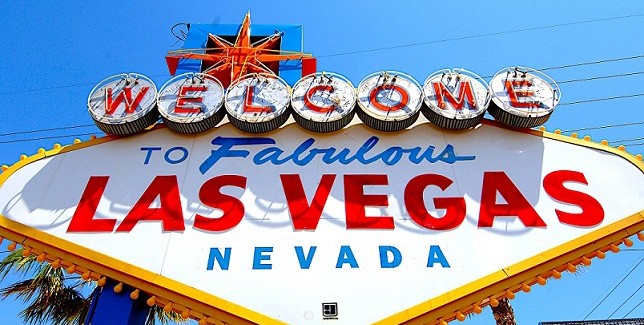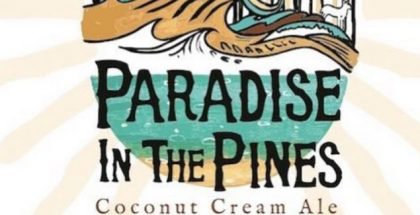Perception Beats Reality In New Jersey’s Showdown Over Sports Gambling
Every week in his gambling blog on Grantland.com, “Cousin Sal” Iacano recommends creative prop bets for readers tired of betting over/unders or picking against the spread. Because sports gambling is illegal pretty much everywhere, Cousin Sal counsels his readers to place their bets using something he calls “Jermajesties”—an imaginary currency named after Jermaine Jackson’s fourth son, Jermajesty Jackson. While naming your son Jermajesty is arguably less absurd than Cousin Sal using the term to advocate illegal gambling without actually advocating illegal gambling, this practice begs the question: why bother?
 It’s not as if the NCAA and other major sports leagues aren’t already cashing in on the increased interest gambling encourages. For instance, everyone reading this article probably has two things in common: (1) the satisfaction of correctly picking Duke to lose in the first round of the NCAA tournament (twice!); and (2) the pain of watching someone with no sports knowledge whatsoever win a bracket pool because they liked George Mason’s mascot. While bracket pools are arguably illegal, the NCAA hasn’t exactly turned down the $10.8 billion CBS and Turner Broadcasting paid to televise March Madness—now brought to you live on CBS, TNT, TruTv, Lifetime, OLN, and the Home Shopping Network.
It’s not as if the NCAA and other major sports leagues aren’t already cashing in on the increased interest gambling encourages. For instance, everyone reading this article probably has two things in common: (1) the satisfaction of correctly picking Duke to lose in the first round of the NCAA tournament (twice!); and (2) the pain of watching someone with no sports knowledge whatsoever win a bracket pool because they liked George Mason’s mascot. While bracket pools are arguably illegal, the NCAA hasn’t exactly turned down the $10.8 billion CBS and Turner Broadcasting paid to televise March Madness—now brought to you live on CBS, TNT, TruTv, Lifetime, OLN, and the Home Shopping Network.
Despite this cozy relationship between sports and gambling, however, a federal judge on December 21 held that sports gambling harms the NFL, NCAA and other sports leagues to such a degree that they can sue to prevent New Jersey from legalizing it.
Twenty years ago, Congress made sports gambling illegal in all but four states—the most notable exception being Nevada—by passing the Professional and Amateur Sports Protection Act, or “PASPA.” Last January, New Jersey Governor Chris Christie signed a law permitting sports gambling at his state’s casinos and racetracks. Because New Jersey is not one of the four states exempt from PASPA, New Jersey’s allowance of gambling would seem to violate the federal law prohibiting it. Christie, for one, doesn’t seem much bothered by this fact, saying of his state’s new law, “If someone wants to stop us, let them try to stop us.”
Well, New Jersey, challenge accepted. In August, four professional sports leagues (the NFL, NBA, NHL, and MLB) and the NCAA sued in federal court to stop the New Jersey from implementing its new sports gambling law. These leagues argued that New Jersey’s law violates PASPA and will undermine the integrity of the sports they represent by “fostering suspicion that individuals and final scores of games may have been influenced by factors other than honest athletic competition.”
In addition to directly challenging PASPA itself, New Jersey countered that the NCAA, NFL and other plaintiffs have no standing to bring a lawsuit in the first place because they would suffer no harm from New Jersey’s legalization of sports gambling. (The United States Attorney General, the only party guaranteed to have standing to enforce and defend federal law, has thus far declined to intervene.) Given the many Jermajesties already being wagered legally and illegally on professional and collegiate sports, New Jersey argued that professional sports leagues can’t be harmed by something in the future that is widespread today. New Jersey pointed out that “nearly $3 billion is [legally] wagered on sporting events each year in Nevada” and an estimated “$380 billion is wagered each year on sporting events through illegal and offshore channels.” In essence, if the sports leagues aren’t already suffering, what harm can New Jersey do?
According to U.S. District Judge Michael Shipp, just enough harm to let the leagues sue. The Court let the leagues maintain their lawsuit because the leagues’ interest “in protecting how they are perceived by their fans” would be harmed if New Jersey legalized sports gambling. To support this finding, the Court cited several surveys reflecting present concerns about gambling’s effect on professional and collegiate sports. Of greatest importance to the Court was a 2007 NBA survey in which 17% of fans said they would spend less money on league tickets and merchandise if an NBA team were to be located in Las Vegas, Nevada. The Court reasoned, since so many professional sports franchises are located in and around New Jersey, the result might be the same if sports gambling were legalized there. To the Court, that New Jersey’s constitution still prohibits gambling on New Jersey colleges only reinforces the perception that the integrity of athletic competition is harmed by its proximity to established gambling.
The Court’s ruling, however, doesn’t spell total doom for New Jersey’s effort to legalize gambling. The sports leagues must still show that New Jersey violated PASPA by legalizing sports gambling, and simply being harmed by gambling doesn’t prove that.
This dispute, however, reveals an attempt by the NFL and other leagues to have their cake and eat it too. The leagues unquestionably benefit from a status quo in which gambling exists but is not acknowledged. With gambling, the leagues get increased viewership and attention on their sports. Without officially recognizing gambling’s existence, the leagues get to tell fans the games they are watching are unadulterated. Whether this is really true is another matter because, like Judge Shipp held, perception is reality for the NFL, NBA and other leagues. The NFL is betting that what matters most to its fans is that they think the outcomes of the games they are watching are not predetermined. By recognizing gambling, this perception would be shattered.
So why bother using the term Jermajesties to bet on the NFL? Because, without it, fans might not care.
-
Great article — very interesting stuff.







Comments